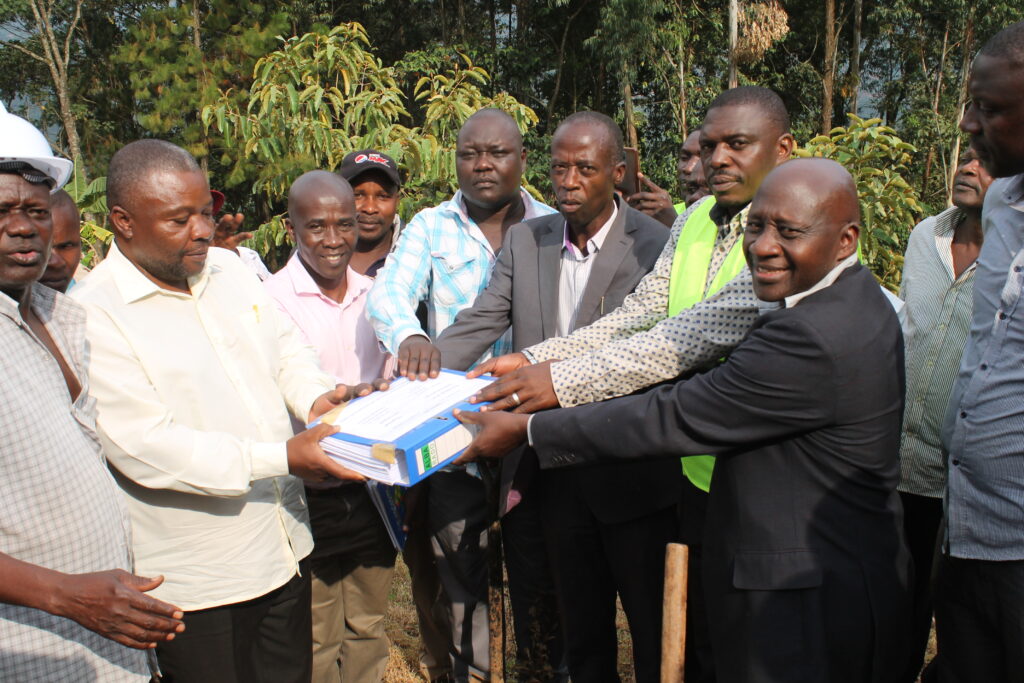By George Bita
Farmers in the Busoga sub-region are setting up irrigation systems to sustain crop production during the dry spell.
Musa Kasone, a commercial mixed farmer at Budoma village, Luuka district, said an irrigation system ensures continuous harvesting throughout the year.
“A farmer with an unlimited water supply can grow crops all year round,” Kasone said.
He observed that he can only grow rice and maize at the ever-wet half-acre swampy stretch of his farmland.
“This limits my production, unlike other farmers with solar-powered irrigation schemes,” he said.
Zubair Ikanga, a farmer at Nakabugu village, Bulongo sub-county in Luuka district, said his 50-acre farmland partially sits on a wetland, enabling him to harvest uninterrupted.
“I tap the water flowing through the wetland using artificial barriers or dams. It serves as my farm reservoir during the dry spell,” Ikanga said. He added that he grows rice on the marshland and keeps fish in ponds.
Situation elsewhere

Charles Kiwanuka, an urban farmer in Busei zone, Iganga municipality, said, last year, he invested in an irrigation scheme with a submersible pump and tank.
“I can now grow tomatoes and cabbages, among other vegetables throughout the year,” Kiwanuka said.
He added that depending on rainfall seasons frustrates farming goals.
Augustine Walwawo, a farmer at Namavundu A village, Budomero sub-county in Kaliro district, said he uses an irrigation scheme to water his crops.
“This helps me maintain crop production throughout the year at my 20-acre farm,” Walwawo added.
He grows coffee, citrus fruits, maize and bananas. He recently also established an apiary.
He said he uses a foot pump attached to the farm borehole to fill a 5,000-litre tank for irrigation during the dry season.
“I invested sh6m, which included setting up the borehole, the pump and assembling the tank structure. Annual maintenance costs about sh200,000,” he said.
Christine Mukoda, Walwawo’s wife, noted that they also dug channels across the garden to tap rain water runoff.
“This helps the water stay longer in the garden,” Mukoda added.
Cheap crops?
Elvis Tanaziraba, the Iganga central market chairperson, said, as immediate beneficiaries of farm produce, a continuous cheap supply is every vendor’s dream.
“When fresh crops hit the market in June, July, November and December, crop prices drop. But this could be changed with non-stop crop production,” he said.
Tanaziraba added that this can only be achieved if more commercial farmers access irrigation equipment.
Kiwanuka said, during the harvest period, a kilogramme of maize seeds is as low as sh250 at the farm-gate price.
“So, if production is sustainable despite the weather patterns, consumers would enjoy low prices all year. This will also help get rid of unscrupulous middlemen who hoard produce during times of plenty and sell it expensively when crop production has reduced,” he added.
Beneficiary boosted
Dauson Musasizi, a farmer at Namboote village in Namutumba district, sang praises of the solar-powered irrigation system at his 25-acre farmland.
“I am among the lucky beneficiaries of solar irrigation set-ups under the Operation Wealth Creation initiative. Ever since the system was installed at my farm, production has been sustained all year round,” he said.





